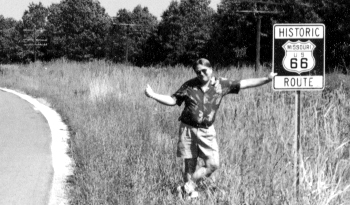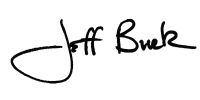| | | |||
 | ||||
|
Rules are an important part of life and society. Society uses them to help identify the good guys and the bad guys. Obey the rules and you get the gold watch and a condo overlooking the river. Break the rules and you go up the river and get a boyfriend with a gold tooth. Rules are also an important part of racing. They're supposed to give racers that mythical "level playing ground" that supposedly (but never does) gives everyone an equal chance to win. They're supposed to keep the cost of racing equal for everyone and they're supposed to punish the ones that break them. In some branches of the sport like NASCAR, Cart, and the IRL it seems that the rules and rules makers for the most part accomplish that. But the more I look at it, the more I'm convinced that drag racing's rules makers, at almost all levels, don't seem to be able to accomplish what other sanctioning bodies rules people do. It appears to me that the rules makers in the sport of drag racing either don't understand or, worse, don't care how some of the rules they write affect the racers and the sport, or that many racers feel the rules makers use the rule book as more of a bully pulpit than a tool to help racers and racing. A look at the history of some of the rules that have been written or not written in drag racing finds many more cases where the rules makers hindered the sport and racers than cases where they helped. In some cases it almost appears the people who write and enforce the rules have something in mind other than the well being of the racers and the sport. Here are a few examples that come to my mind. The ridiculous rule that NHRA made restricting fuel cars to a 3:20 gear after Eddie Hill broke the four-second barrier. That rule was supposed to slow Top Fuelers down; it didn't. All that happened was that the fuel racers simply twisted the engines much tighter on the back half of the track, blew up a lot more engines, and marched inexorably toward the 4.50's at 330. All that rule accomplished was to make Top Fuel racing even more expensive. About the same time NHRA opted not to make a rule that would require a wheelie bar for Top Fuel. This despite repeated blowovers by skilled drivers like Eddie Hill, Don Prudhomme, and Don Garlits, and a consensus that a wheelie bar would have at least prevented some of them. Drag racing is just plain lucky somebody hasn't died. Those two decisions certainly leveled the playing field and saved the racers some money didn't they? Then there was the IHRA decision to allow 800+ cubic inch engines in Pro Stock, which meant the rank and file Pro Stock racers had to scrap the engines they had and build new, very expensive engines. Also notable was NHRA's ill- advised Super Gas, Super Street chassis rules of the early 90's that basically put hundreds of those true Sportsman racers out of NHRA racing. And don't forget NHRA's blatant attempt to run the injected nitro racers out of the Federal-Mogul Dragster class, despite the fact that a nitro car has never, ever even come close to winning a World Championship. The only reason NHRA didn't get the job done this year was that a couple of well financed teams let it be known that legal action would be taken if NHRA persisted. Despite that change of heart they have succeeded in running quite a few racers out of the sport and the class. And once again those who stay with their A/FD will have to junk their old cars and build yet another new car to conform to yet another set of rules -- and chances are a supercharged alky burner will win the championship again. And then there is the non-enforcement of nitrous oxide use rules. What got me thinking about all of this was a recent series of rules changes in IHRA Pro Modified that didn't seem to have anything to do about fairness. In fact, from an outside point of view the actions of the IHRA rules makers might appear to be aimed at running the supercharged racers out of the class. Call me paranoid if you must, but consider these facts. Jim Oddy and Fred Hahn got their supercharged Pro Mod to run a 6.26 at their home track and won the race. The team was rewarded with a 50lb weight hit and a mandatory reduction of spoiler height. A curious move considering Oddy and Hahn weren't leading the points, had won only two races, and a nitrous car was and still is the points leader by a wide margin. It is also curious that in March of this year another supercharged racer, Al Billis, ran nearly the same number and then backed it up for the record, which is 6.268. Only when Oddy and Hahn ran that number in July did the IHRA rules makers feel a need to level the playing field. Oddly enough, even though IHRA boss Bill Bader tells fans and racers that he wants the supercharged cars in the class it seems that whenever they start to win he allows his rules makers to handicap them. Not only that, but in the off season the IHRA rules makers gave the nitrous cars the four disc clutch and another solenoid for their nitrous system while giving the supercharged racers nothing. A look at the qualifying sheets from any IHRA national event shows that there are only two blower cars that are consistently competitive: Hahn and Oddy's Corvette and Glen May's Ford. The other blower cars are struggling just to qualify. It's hard for me to understand the need for regular rules changes designed to slow down the blower cars when a nitrous car has a significant lead in Championship points and nitrous cars hold eight of the top ten spots. Oh yeah, just for the record Hahn and Oddy have never won an IHRA World Championship and only have won five IHRA national events since 1989. Constant arbitrary rules changes, which benefit nitrous cars and penalize blower cars, could be construed by some as a sign from IHRA that they have a bias against having blower cars in the class. There are certainly those inside the IHRA organization who have voiced that feeling privately. For my money, I think that the IHRA rules makers have made a series of rules in Pro Modified that penalize the innovators and reward the status quo while doing little to level the playing field or control cost. A look at the points race shows the same names near the top year after year and fewer and fewer entries in a class that was once the darling of the media and fans. Maybe every rule maker in all of drag racing's sanctioning bodies should be required to own and race a car and be required to spend their money and time rebuilding a car when a rule change is made. It might give them a whole new perspective and a better handle on who the good guys and bad guys are and what are good and bad rules. At least that'd be the way it would be if I were making the rules.
photo by Kay Burk
| ||||
|
Copyright 1999-2001, Drag Racing Online and Racing Net Source | ||||
 I've been thinking a lot lately about rules, rules makers and racing.
I've been thinking a lot lately about rules, rules makers and racing. 